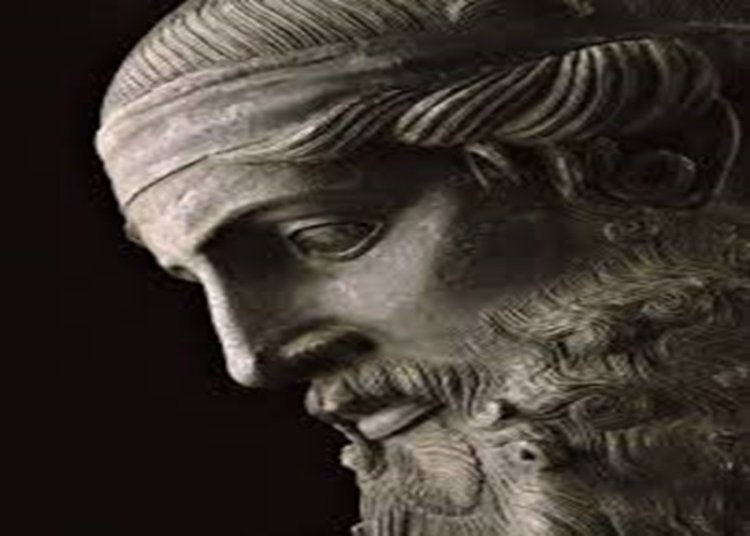Plato, one of the most influential philosophers of ancient Greece, laid out a vision of governance that continues to intrigue scholars today. Central to his political theory is the concept of the "Philosopher King," a ruler who governs not by force or desire for power, but through wisdom and love for truth. In his seminal work, The Republic, Plato outlines this idea as the key to achieving a just and harmonious society. This article delves into Plato's concept of the Philosopher King and its importance within his broader theory of justice.
Plato's Theory of Justice and the Role of the Philosopher King
Plato's The Republic revolves around the question: What is justice? Through his famous dialogues, he introduces the idea that a just society is one where individuals perform the roles they are best suited for, ensuring harmony and balance. For Plato, true justice occurs when each class in society fulfills its purpose: the rulers govern wisely, the soldiers protect, and the producers provide for the community's needs. However, the linchpin of this societal structure is the ruler, specifically the Philosopher King.
Plato argues that only philosophers—individuals who seek truth and possess knowledge of the forms, especially the form of the Good—are fit to rule. Unlike typical rulers driven by wealth, power, or popularity, the Philosopher King has no selfish motives. His sole concern is the welfare of the state and the pursuit of justice. This, Plato believed, would lead to an ideal society where rulers make decisions based on rationality and wisdom rather than personal interest.
The Philosopher King and Plato's Ideal State
Plato’s notion of the Philosopher King arises from his belief that knowledge is the highest virtue and that only those who understand the ultimate truths of existence—what he called the Forms—are equipped to make moral decisions for the greater good. The Philosopher King is, therefore, the epitome of the wise ruler, trained in philosophy and ethics, and capable of understanding the complexities of justice.
In Plato’s ideal state, these philosopher-rulers undergo rigorous education, which includes subjects like mathematics, dialectics, and philosophy. They are taught to think beyond the material world and seek wisdom that transcends common human desires. This intellectual training is essential because only those who comprehend the Form of the Good can create policies that promote the true interests of the citizens, thereby establishing justice.
Why Plato Believed in the Philosopher King
Plato’s insistence on the Philosopher King as the ideal ruler stems from his critique of existing political systems. He viewed democracy, oligarchy, and tyranny as flawed because they often resulted in leaders who were more concerned with their own power or personal gain than the well-being of the people. In contrast, a philosopher-ruler, who has no desire for wealth or fame, is motivated purely by the pursuit of knowledge and justice.
This concept of the Philosopher King also reflects Plato's belief in a hierarchical society where individuals have specific roles based on their natural abilities. Not everyone is fit to rule, just as not everyone is fit to be a soldier or a craftsman. According to Plato, only the few who reach the highest levels of intellectual and moral understanding are capable of governing effectively.
Relevance of the Philosopher King in Modern Times
While the idea of a Philosopher King may seem idealistic or even utopian, its relevance can still be observed in contemporary political thought. Modern democratic systems often emphasize the importance of knowledge, education, and ethical leadership, though in practice, these values are not always upheld. The Philosopher King serves as a timeless reminder that rulers should aspire to wisdom and justice rather than power and personal gain.
In today's political landscape, where corruption and self-interest often dominate, Plato's vision challenges us to reconsider what qualities we value in our leaders. Should political power be entrusted to those who are motivated by ambition, or should it be reserved for those who are guided by wisdom and virtue? While the idea of a Philosopher King ruling over a nation may not be feasible in a literal sense, the core principle of prioritizing wisdom and justice in governance remains highly relevant.
Conclusion
Plato's concept of the Philosopher King embodies his vision of an ideal ruler—one who is driven by the pursuit of wisdom and justice, rather than personal ambition. Through the Philosopher King, Plato introduces a radical idea: that the most just society is one where the rulers are philosophers, capable of understanding the true nature of justice and the Good.
While the practical implementation of such an idea may seem unrealistic in today's world, the philosophical insights behind Plato's theory continue to inspire debates about the nature of justice, leadership, and the ideal society. In essence, the Philosopher King serves as a metaphor for the kind of ethical and wise leadership that any society should strive for, even in our modern age.
For further exploration of Plato’s theories, including his ideas on justice, governance, and morality, visit Plato's Philosopher King.


















